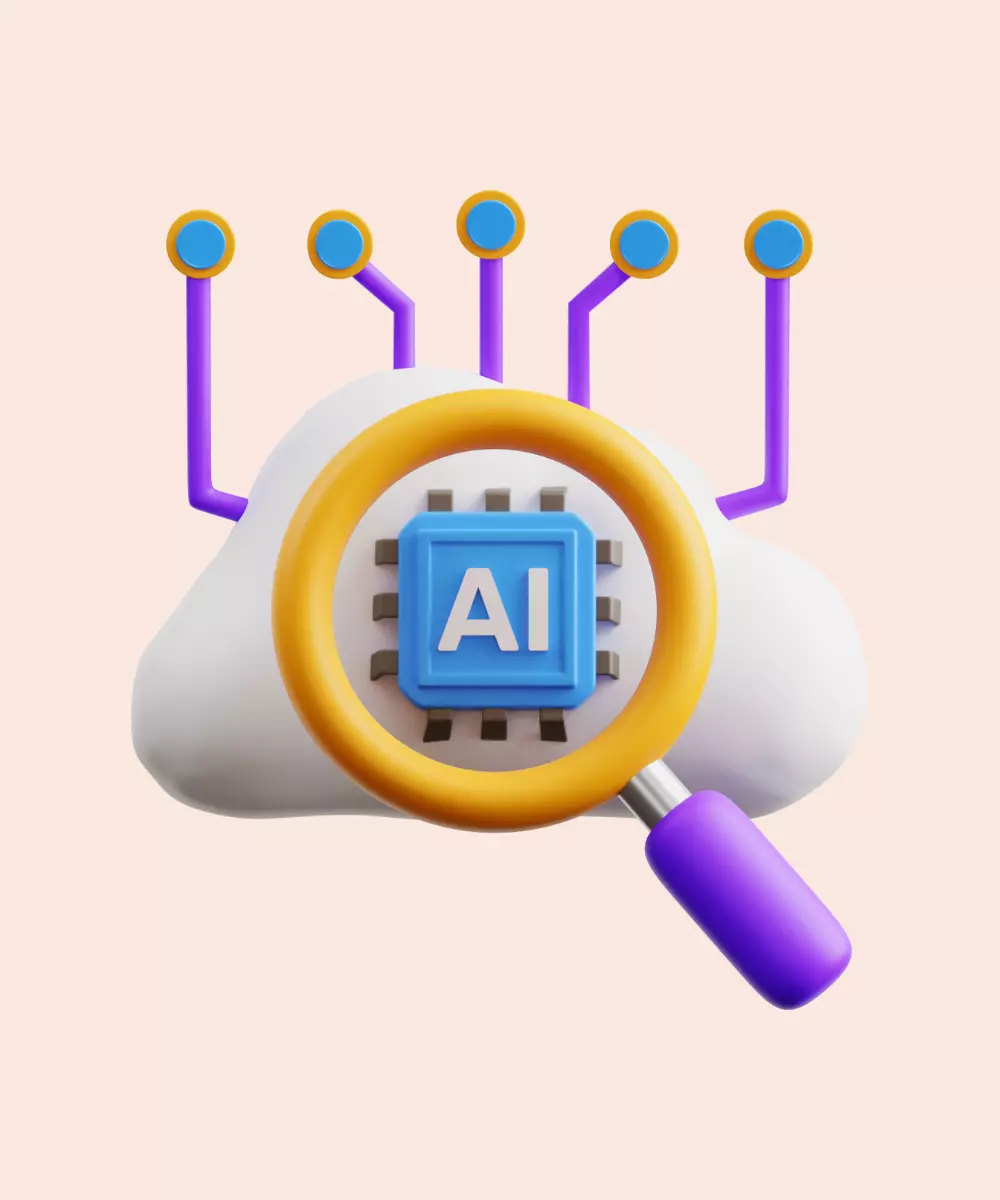Introduction
The decision between developing a mobile app or a web app stands as a pivotal crossroads for businesses aiming to establish or expand their online presence. This choice is far from trivial, as it can significantly influence user engagement, operational efficiency, and overall market success. With mobile internet consumption at an all-time high and the seamless integration of online services into daily life, understanding the nuances of mobile and web app development is essential for businesses striving to meet their audience's evolving needs.
At What the Flutter, we lead in mobile and web app development, leveraging our extensive experience from concept to launch to provide deep and comprehensive insights. This guide is more than just an overview; it's crafted from years of expert experience and strategic thinking, aimed at clarifying the mobile vs. web app debate. We offer a detailed comparison, key considerations, and market trends to equip you with the knowledge needed for informed decision-making that aligns with your business goals. Let's explore the critical aspects of mobile and web apps, setting the stage for your digital success.
Main Differences in Mobile App & Web App

Understanding the fundamental differences between mobile apps and web apps is crucial for businesses as they navigate the digital landscape.
Definition and accessibility
- Mobile apps are applications specifically designed for mobile devices, including smartphones and tablets. They offer a more intimate and responsive user experience by leveraging the device's native features and hardware, such as the camera, GPS, and accelerometer. Users typically download these apps from app stores like Google Play, App Store or App Gallery which means your app needs to meet specific platform requirements to be listed.
- Web apps are websites designed to deliver an experience close to native mobile apps, yet they function entirely within web browsers. Unlike mobile-targeted web apps, these are meant for a broader use across all types of devices connected to the internet, whether desktops, tablets, or smartphones. Users can access them directly through their browser, bypassing the need to download and install any application. This approach offers universal accessibility and simplifies reaching a more extensive audience.
Development and maintenance
- Development complexity and cost: The total cost of development for both mobile and web apps can converge to be roughly equivalent, influenced by the extent of required interaction with hardware features such as GPS and notifications. Depending on the specifics of integration, either development pathway could prove to be more costly, but overall, the expenses tend to align closely.
- Technology stack: The technology stack is a foundational element in app development, varying significantly between mobile and web applications. Mobile app development for iOS often relies on Swift or Objective-C, utilizing tools and environments tailored to Apple's ecosystem, while Android development prefers Kotlin or Java, primarily using Android Studio. These platforms come with distinct libraries, tools, and frameworks. In contrast, web app development employs a universal stack comprising HTML, CSS, and JavaScript for the frontend, often enhanced with frameworks like React, Angular, or Vue.js for dynamic user interfaces. Usually, this requires developing separate codebases for each platform. However, using a cross-platform framework such as Flutter allows for a unified codebase that can serve both mobile and web platforms, or exclusively one of them.
- Maintenance and updates: Any apps require regular updates to fix bugs, add features, and remain compatible with the latest operating system versions. In mobile apps these updates must be downloaded by the users, which can sometimes lead to fragmentation and inconsistency in the user experience. Web apps, however, can be updated centrally on the server, ensuring all users access the most recent version without any action on their part.
User experience and performance
- User experience: Mobile apps generally provide a superior user experience, optimized for the device's screen size and orientation. They can operate offline and utilize device-specific gestures, which can make the user experience more intuitive and engaging. Web apps, while improving, can sometimes offer a less smooth experience, particularly with complex animations or when relying heavily on server-side processing.
- Performance: Mobile apps tend to perform better than web apps because they are designed specifically for the hardware they run on. This can lead to faster response times and a more seamless interaction for the user. Web apps have made significant strides in performance, especially with the advent of Progressive Web Apps (PWAs), but may still struggle with high-performance demands.
SEO and discoverability
- Dual perspective: Mobile apps rely on App Store Optimization (ASO) to improve visibility in app stores. ASO focuses on optimizing your app’s title, keywords, and descriptions to boost its search rankings. Ratings, reviews, and downloads also play a crucial role in an app’s discoverability within these platforms. Web apps, however, leverage Search Engine Optimization (SEO) to increase their visibility on search engines. Effective SEO for web apps includes using relevant keywords, optimizing for mobile users, and improving site speed to attract organic search traffic.

Security
- Security considerations: Both mobile and web apps face security challenges, but the nature of these challenges can differ. Mobile apps must ensure secure data storage on the device and protect against vulnerabilities specific to mobile operating systems. Web apps, accessible over the internet, must prioritize web-based security measures, such as SSL certificates, to protect user data during transmission.

The choice between a mobile app and a web app depends on a variety of factors, including your business goals, target audience, budget, and desired features. Understanding these key differences is the first step in making an informed decision that aligns with your strategic vision and operational capabilities.
Questions to Answer before Choosing Mobile or Web
Deciding between developing a mobile app and a web app is a significant choice that can influence the trajectory of your business’s digital strategy. Before embarking on this path, it's essential to consider several key questions that can help guide your decision-making process.
1. Who is your target audience?
Understanding the preferences, behaviors, and technology usage of your target audience is critical. Are they more likely to use mobile devices for their online activities, or do they prefer the broader screen and capabilities of desktops and laptops? Analyzing your audience’s demographics, including age, location, and tech savviness can offer insights into their preferred platforms, directly impacting your app development choice.
2. What is your budget?

Budget considerations significantly influence the decision between developing a mobile or web app, largely depending on the app's focus. If the priority is on mobile-specific features like GPS and notifications, developing a web app may become more costly due to the complexity of implementing these features. In contrast, focusing on web-specific functionalities, such as advanced routing and web analytics integration, can make mobile app development more expensive. Therefore, the budget is not just about the initial costs but also includes long-term maintenance and updates, depending on the app's targeted functionalities and user experience priorities.
3. What features do you need?
The functionality and features you plan to offer can dictate the platform choice. Mobile apps typically allow for a deeper integration with the device’s hardware, offering functionalities like GPS, camera access, and push notifications, Bluetooth, NFC, biometric sensors, or sophisticated gestures. If your app concept relies heavily on these features, a mobile app might be the preferred route. Conversely, if your application needs to be easily accessible across a wide range of devices without the need for complex functionalities, a web app could be more suitable.
4. How fast do you need to go to market?
Time-to-market is an important consideration in the competitive digital landscape. Web apps can often be developed and launched more quickly than mobile apps, as they don’t require app store approval and can be updated more effortlessly. If your priority is to validate your business idea or seize a market opportunity swiftly, a web app might offer the agility you need. Mobile apps, while potentially offering a more engaging user experience, may necessitate a longer development and approval process.
5. How will you distribute your app?
Your app's distribution strategy plays a crucial role in choosing its platform. Publishing and spreading a mobile app can be more challenging due to the app stores' guidelines and review processes, which must be adhered to before making the app available to users. While this route may pose hurdles in visibility and user acquisition, it also offers a potential advantage: the ability for users to discover your app organically within app stores, providing valuable organic traffic that can help validate your app.
In contrast, web apps are significantly easier and faster to publish, as they bypass the app store intermediary and can be directly accessed via the web. However, without the built-in discovery features of app stores, a web app remains virtually invisible until substantial marketing efforts (such as SEO or paid advertising) are undertaken to promote it. This difference underscores the importance of considering how each platform aligns with your marketing capabilities and visibility goals.
6. Are you prepared for ongoing maintenance and updates?

Both mobile and web apps require regular updates and maintenance to ensure they remain secure, functional, and engaging. However, the nature of these updates differs between platforms. Mobile apps may require more frequent updates to accommodate new operating system versions and hardware, necessitating a proactive approach to maintain compatibility and performance. Web apps allow for more centralized updates, potentially reducing maintenance overhead but still requiring vigilance to ensure cross-browser compatibility and performance optimization.
7. How important is cross-platform accessibility?

If your objective is to make your application accessible on any device without requiring users to download anything, a web app could be the perfect solution. Web apps operate within web browsers, providing the versatility to function across various platforms and devices. However, if you're focusing on mobile-first experiences or aiming to utilize platform-specific features, a mobile app may suit your needs better. Additionally, opting for cross-platform solutions like Flutter enables the simultaneous development of both web and mobile applications. This approach not only streamlines the development process but also expands your app's reach, ensuring a consistent user experience across multiple access points.
8. What level of performance and speed do you require?
Performance expectations can significantly influence your choice. Mobile apps generally offer superior performance and speed compared to web apps, as they are developed specifically for the platform they operate on and can better leverage the device's processing power. If your application demands high performance for tasks like complex calculations, real-time updates, or intensive graphics, a mobile app could be more beneficial.
9. How crucial is offline access?
Evaluate the necessity for your app to function without an internet connection. Mobile apps can provide robust offline capabilities, allowing users to continue using the app or access certain features even when disconnected. If offline access is a key aspect of the user experience you wish to provide, leaning towards a mobile app development approach may be wise.
By carefully considering these questions, businesses can make a more informed decision about whether a mobile app or a web app is the right choice for their digital product. This decision-making process is crucial for aligning technological capabilities with business objectives, target audience needs, and market dynamics, ensuring that the chosen platform maximizes engagement and achieves the desired impact.
Mobile & Web Apps Market Overview
Navigating the current landscape of mobile and web app development requires a nuanced understanding of market trends, user preferences, and the technological innovations shaping the future of digital products. This overview provides insights into these critical areas, helping businesses make informed decisions in their app development journey.
Market trends

- Evolving consumer behaviors: The digital consumer's behavior continues to evolve, with a significant shift towards mobile-first experiences. This trend is underscored by increasing smartphone penetration and the convenience of having access to a wide array of functionalities at one's fingertips. However, the demand for web apps remains strong, particularly in scenarios where users seek quick access without the need for downloads, emphasizing the importance of responsive and accessible web experiences.
- Technological advancements: Advancements in technology, such as the rise of Progressive Web Apps (PWAs), are blurring the lines between mobile and web apps. PWAs leverage the latest web technologies to offer a mobile-app-like experience in web browsers, including offline capabilities and push notifications. This evolution is narrowing the performance and functionality gap between web and mobile apps, making the choice between them more dependent on specific business needs and user contexts.
- Market size and growth: The mobile app market continues to exhibit robust growth, driven by an ever-expanding range of applications in sectors from entertainment and social media to finance and healthcare. According to industry reports, global app revenue has been steadily climbing, with significant contributions from both direct app purchases and in-app advertising. The web app market, while more mature, also shows considerable activity, particularly in the SaaS (Software as a Service) sector, where businesses increasingly rely on web-based applications for operations, collaboration, and customer engagement.
- User preferences: User preferences vary significantly across different demographics, regions, and use cases. Mobile apps tend to be favored for their convenience, speed, and personalized user experiences, especially for daily activities and entertainment. Web apps, on the other hand, are often preferred for tasks that require more extensive research or input, such as shopping, booking services, or accessing information, thanks to their ease of access and cross-device compatibility.
Key technological drivers
- Cross-platform development frameworks: The emergence of cross-platform development frameworks like Flutter and React Native is making it easier and more cost-effective to develop mobile apps that offer a consistent experience across iOS and Android devices. This development is encouraging more businesses to invest in mobile apps without the daunting overhead of maintaining separate codebases for each platform.
- Cloud integration: Both mobile and web apps are increasingly leveraging cloud services for enhanced scalability, performance, and reliability. Cloud integration facilitates more sophisticated app functionalities, such as real-time data synchronization, storage solutions, and advanced computing tasks, broadening the capabilities and appeal of digital applications.
- Artificial intelligence and machine learning: AI and ML integration into both mobile and web apps is transforming user experiences through personalization, predictive analytics, and intelligent automation. These technologies enable apps to adapt to user behaviors, predict user needs, and provide more engaging and efficient interactions, setting new standards for what users expect from their digital experiences.
The mobile and web app markets are dynamic and continually influenced by changing user behaviors, technological advancements, and global market trends. As businesses consider developing a mobile app or a web app, understanding these factors is crucial to aligning their digital products with user expectations and leveraging the opportunities presented by current and emerging technologies.
Conclusion
The decision to develop a mobile app or a web app transcends mere technical selection; it involves identifying key priorities by addressing the questions we've outlined. Choosing cross-platform solutions like Flutter for your strategy can mitigate many of the challenges associated with choosing between web and mobile app development. Utilizing a single codebase across various platforms can significantly reduce development costs, often by nearly half, making it a cost-effective option for deploying across multiple platforms without sacrificing quality or performance.
At What the Flutter, we excel in cross-platform app development. With extensive experience in creating both mobile and web apps, our team is your go-to partner for turning your digital visions into reality. If you're looking to develop an app that stands out, don't hesitate to contact us today. Let's collaborate to craft the app you envision, be it mobile, web, or cross-platform.











